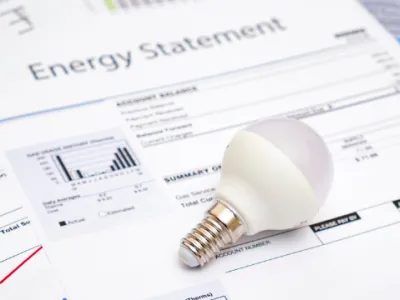Assistance with energy bills

Published June 26, 2020
Are you worried about getting your energy bills paid? Maybe you are already falling behind? It’s stressful to worry about bills piling up, having your electricity or natural gas shut off, or not being able to get your propane tank filled.
Getting your utilities shut off or having an empty fuel tank can cause all sorts of problems related to comfort and safety. It can also lead to additional expenses if you have to pay late fees, reconnection fees, and potentially a deposit to get reconnected. Clearly, households already falling behind on their bills don’t have the extra funds to pay even more expenses.
If you are behind on your bills, to avoid getting shut off, reach out to your utility and explain your situation. Ask to be placed on a payment plan. This is important at any time, but during this COVID emergency, many utilities have put in protections to help consumers, and it is important to make contact and find out how your utility is handing overdue bills. Here are resources related to COVID-19, including information on how utilities are addressing shut offs and overdue bills.
If you just don’t have the income or resources to get caught up on your bills, look at a variety of sources to help. These are unusual times and there are many organizations and people who want to help. We have put together a list of potential sources of assistance. Program details vary and some are more local in nature. Reach out to the various organizations with questions. This is not an inclusive list but hopefully is a good start in identifying resources to help you get caught up.
- Energy Assistance. This is a federal program administered by the state and local providers. Eligibility is based on income and household size. Grants are available for natural gas, delivered fuels, and electricity. Energy assistance is only available seasonally.
- County Assistance. Minnesota counties have social services departments that distribute funds for a variety of needs, often including emergency funds. Contact your local county for more information about eligibility and available programs.
- Salvation Army. The Salvation Army is a nonprofit organization that provides a variety of services to those in need. Their program, called HeatShare, can help households pay energy bills. The program looks at individual circumstances and works to fill gaps when other programs, such as energy assistance or county assistance, aren’t an option or can’t fully address needs.
- Community Social Service Agencies. There are a variety of organizations across the state that run food banks, providing housing assistance, and other social services. Many of these organizations have social workers or case workers on staff who work individually with community members. Social service organizations can be a great source of information and potentially have funds available to help with energy bills.
- Local Houses of Worship. Some congregations have funds to help members and nonmembers needing help. Reach out to local organizations and inquire about programs they may have to help with paying bills.
- Student Services. If you are a student, reach out to your campus social services and ask if they have assistance available to help with bills. Some campuses provide a variety of services to students including food banks, finding housing, legal help, etc.
We understand how stressful it is to be behind your bills. We encourage you to look at a variety of options, be creative and don’t be afraid to ask for assistance. Work with your utility to create bill payment arrangements that you can handle.
It’s also worthwhile to get familiar with shut-off protections such as the Cold Weather Rule, Medical Device Protection, and Military Personnel Protection. If you are eligible for these protections, reach out to your utility and get registered for these programs. If you are not able to reach a payment agreement with your utility, the Public Utilities Commission Consumer Affairs Office may be able to help.
- Cold Weather Rule. This protection applies between October 15 and April 15. If you are having trouble paying your bills, you must arrange a payment plan with your utility or you could still be shut off. The payment plan options will vary based on income.
- Medical Device Protection. If you require electricity service for medically necessary equipment, the utility must keep your service on or reconnect service if it has been shut off. Contact your utility and they will tell you what type of proof you must provide as well as if a payment plan is required.
- Military Personnel Protection. State Statute forbids a municipal utility, cooperative electric association, or public utility to disconnect the utility service of a residential customer if a member of the household has been issued orders into active duty if the household creates a payment plan with the utility provider. Contact your utility if this applies to your situation.
CUB is always here to help. While we don’t have funding to help pay your bills, we can offer options for you to consider based on your situation and provide customized suggestions to reduce your energy use and expenses. Contact us and we’ll get back to you as soon as possible.